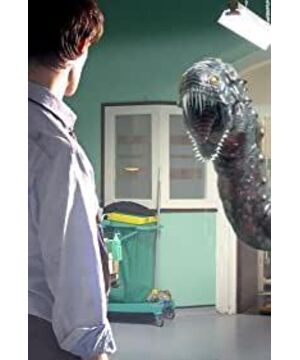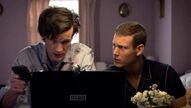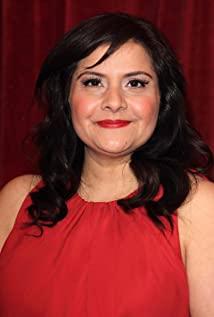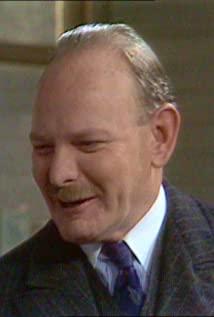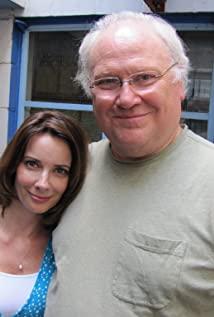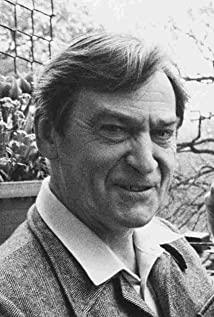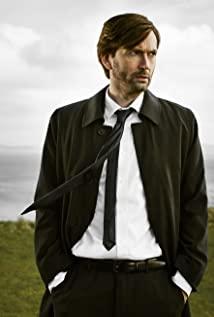Looking back in 2022, looking at the changes from ten to eleven, apart from the background of the era and the direction of public opinion broadcast at that time, I think it is better to give a more pertinent evaluation of the fifth season, although my evaluation still closely revolves around the first four seasons. Compared to the fifth season.
-- but I'm not comparing David Tennant and Matt Smith. In fact, both of my Ph.Ds liked it.
Little Ten is romantic, melancholic, sad, and even depressed at the end of the fourth season. The whole three seasons of the story weighed on him, the powerlessness of fate and the pain of struggle, which were vividly presented to everyone through David Tennant's performance. His performance made my heart hurt so much that I began to hope that he would be reborn and create new memories with a new face and a new look.
The departure of Xiao Shi made me think that sometimes the rebirth of the Doctor may not only keep his story going, but also let our love for the Doctor continue. So I have no objection to Matt Smith's Little Eleven, and it's natural to directly open the fifth season.
After the fourth season, what we need is a brand new Doctor, the Doctor who is full of surprises. As the youngest doctor in history, Xiao Shi has indeed shown the most "young" side of the doctor. He is reckless, naive, confident, optimistic, stupid, and has a tendency to lose his temper.
This kind of doctor is very cute, it makes people feel fresh, and it also makes people look forward to his new journey. In addition, the static image of actor Matt Smith is a bit ugly, but the animation is very handsome and British, and I accept it without any protest.
But I think the fifth season deserves Matt Smith's performance, or rather, the writing team deserves Matt Smith's performance.
Magic, you really... you can't.
Or it should be said that Magic was very good before, but the fifth season is really not good.
As we all know, the biggest shining point of Comrade Mute lies in his wide-open brain holes and wonderful ideas. We can see this in the blink of an eye, Fireplace Girl ahead.
But the best Doctor Who stories he's ever written have been single episodes of single-unit dramas, with little or no mainline. You let him hold on for an entire season, and he'll show you what a "whole down" is right away.
Seasons 1-4 of the RTD era, the lowest rating I've ever given is "boring". But in Season 5 of Age of Magic, I've rated several episodes as "ugly."
Episode 3, Dalek's victory. ugly.
As one of the biggest opponents of the Doctor, Dalek's appearance is extremely shocking every time. You know the Doctor will win in the end, but Dalek will also wreak havoc and the Doctor's pain. The fifth season actually let them appear in the third episode, md I knew it was not a good thing! !
The whole WWII setting and anti-war elements are interesting, but completely unexplored. The colorful new Dalek is just insulting my eyeballs and my IQ. The part of disarming the bomb is also sickening...the eulogy of human nature is that we will love...ok...from the beginning of this episode, I have experienced a strong preaching atmosphere. I should have known.
Episode 6, Venetian Vampires. ugly.
The ugliest look of the season. The single episode with this historical background is almost the same as the RTD period. What makes me even more angry is the hasty handling of the supporting characters' father and daughter, which is completely cold and hasty, and does not reflect any delicate feelings. The funny thing is, a father who is so worried about his daughter sacrifices himself without even knowing that his daughter was killed? Hello? Where did you cut all the lines that should advance the plot?
Episode 8, The Hungry Earth. Ugly! !
Omg. speechless. How can it be so ugly. how come. The characters other than the female scientist—including Amy—are overwhelming.
Episode 9, Cold Blood. Ugly 100%.
Not the ugliest, but definitely my least favorite episode. I almost fell asleep. Doctor Who has only nearly put me to sleep twice so far - the Donna car system story in season four and the Mantis story in season five (both episodes).
Episode thirteen, The Big Bang. Can't say ugly, can only say boring + ugly.
Disappointment with the story greatly affected my feelings for the Doctor and his companions. I believe Amy would be a likable female companion if the writers were serious about writing it. But the writers made her say the most for almost the entire season: "What's going on?" — and frowned around like a nagging child, as if the Doctor wasn't paying her enough attention.
If it was Rose, she'd be curious, but wouldn't force the Doctor to explain to her. If it was Martha, she would ask smart questions and let the Doctor sort out her thoughts in the most efficient way possible. Donna jokes about the Doctor, but at the same time is always ready to cooperate with the Doctor.
There is an intimate and unique sense of trust in every interaction between the doctor's female companion and the doctor, whether it's a romantic relationship or not. There is also a very subtle emotional connection between Song Jiang and the doctor, who appears at least once in a while.
But the interactions between Eleven and Amy are sometimes too intimate, sometimes like strangers. It is not a gradual process of getting to know each other more and more and trusting each other, but a capricious emotional roller coaster. Again, the screenwriter's pot. Because in every story, Eleven is yelling and Amy is at a loss. Then finally solve the problem through the doctor's urgent wisdom and Amy's human brilliance. This routine repeats itself this season until I feel exhausted.
Rory is the only new and interesting character, an upgraded version of Micky. Two thousand years of waiting made his love so ordinary and great. Amy and Rory's relationship is much more real and moving than Amy and Dr.
Going back to screenwriting again - I think there are three big differences between Magic and RTD.
First, RTD does not like to write didactic lines (but likes to write bloody emotional scenes). Science fiction stories in the RTD era will play a wake-up role through specific plots, but they don't like to point out themes on the surface - such as anti-war, environmental protection, politics, good and evil. Except for love, RTD basically has no obsession with other themes.
Magicte likes to try his best to render the "human core" behind science fiction. No matter aliens or future humans, blablabla preaches a lot. The dramatic conflict is constantly weakened by the lines, and the supporting characters and villains are not strong enough.
Second, the format of RTD is small. He likes miniature stories with complete structure and clear logic. For this reason, he will use any means and methods to justify it. In his writing, we usually only see a corner of space, a little bit of light and a little bit of darkness. Of course, it may have something to do with funding, but when I watched doctors in the RTD era, I never searched the Internet for drama reviews and commentaries because I didn't understand them.
For comparison, Season 5 made me go through a lot of Wikipedia and fan forums. Because each episode has some puzzling holes and flaws. Or you could say - secrets and doubts. The whimsical sci-fi elements are coupled with stories that only have brain holes and no explanation. I watched every episode very hard, and it was easy to get confused.
Third, about the enemy of the Doctor.
The writing team in the RTD era respects Dalek, respects Cyberman, respects any cosmic creature that is on the opposite side of the Doctor. It is because the villain works so hard that the Doctor and his buddies are so good. A rivalry without an opponent cannot be regarded as a rivalry, it can only be regarded as a pale one-man show.
And the fifth season left me with a big impression, that is, the one-man show with the pale characters of the decent characters. Whether it's Dalek painted as Teletubbies, Cyberman hurriedly showing up at the end of the season, or other antagonists like "Vampires" and lost spaceships - these villains appear simply and hastily, appear without end, appear... Not worth mentioning.
Magic even let them have a big happy gathering at the end of the season, but only left the protagonist with a shabby Cyberman and a historical jewel, Dalek. The structure of the entire villain system is, flat. pale. rough. uninteresting. There is no sense of crisis, no independence, no shining point - even the wonderful weeping angel before has lost its own characteristics.
Written here, maybe my comment can also be summed up as "N dead sins of the magic special team". The screenwriter really had a fatal impact on Doctor Who. This season can't be said to be wonderful, it can't be said to be great, it can only be said that it is quite satisfactory, it has no merit, it is tasteless, and it is a pity to abandon it.
View more about The Eleventh Hour reviews


